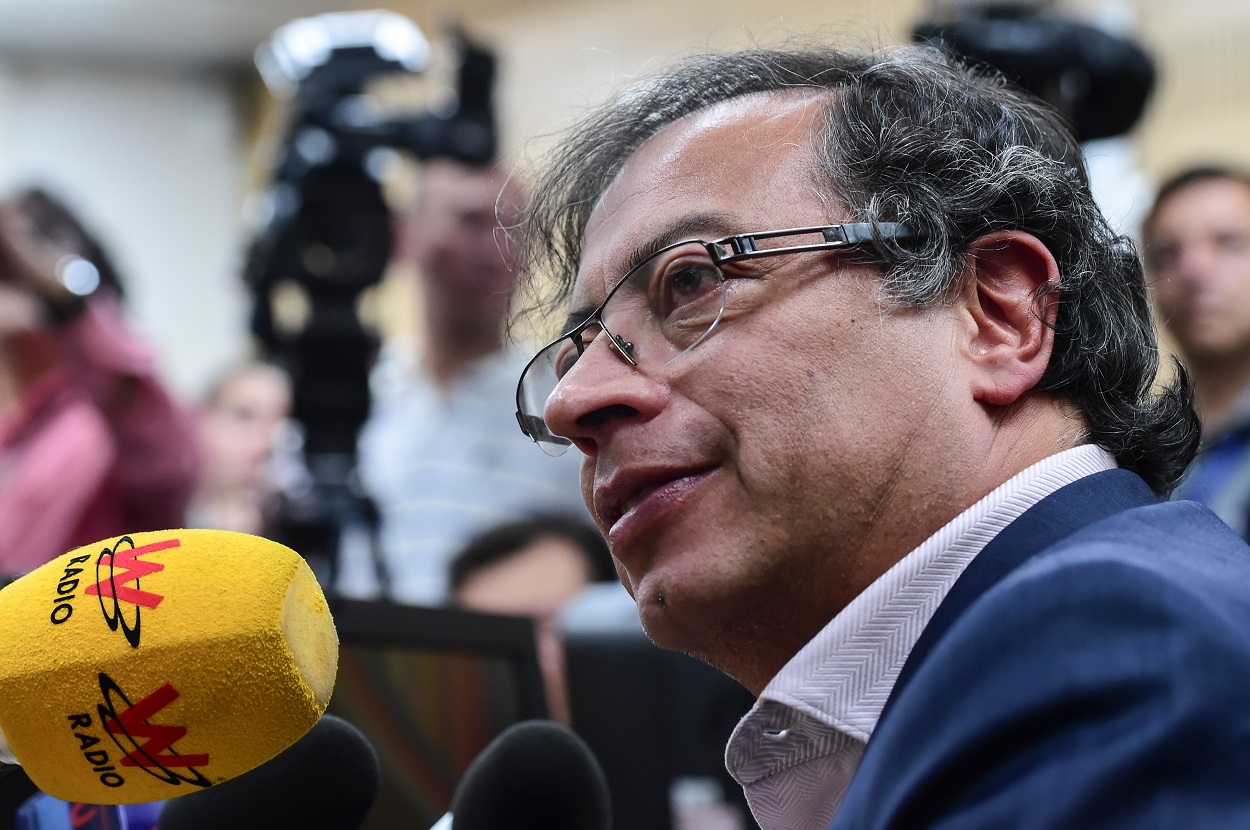BOGOTÁ – No sooner had Gustavo Petro lost a second-round vote to Iván Duque in Colombia’s 2018 presidential election did he announce his intention to run again in 2022.
Petro, a former Bogotá mayor and M-19 guerilla with degrees from universities in Colombia, Spain and Belgium, appeared at the time as the clearest candidate to represent Colombia’s broad and increasingly assertive leftist opposition. His 8 million votes were the most ever received by a leftist presidential candidate and, as a runner-up, Colombian law entitled him to a Senate seat, a powerful perch from which to consolidate support for his Humane Colombia movement.
But rather than leading the opposition, Petro – with demands of loyalty from would-be allies – is instead serving as the biggest obstacle to a united leftist front.
While moderate leftist politicians did unexpectedly well in October’s regional elections, Petro’s more ideological Humane Colombia failed to obtain significant victories in key races, including in Bogotá and Medellín. His overt engagement in nepotism – he backed the unsuccessful campaigns of his brother for a mayor’s seat and his son for the governorship of Atlántico – has cost him dearly. But even in this weakened position, Petro still matters.
Indeed, his failed attempts to play kingmaker in the October elections forecast a bitter effort to form the kind of broad left-of-center coalition the opposition will need to expand its recent success to the national level. In that, Petro will play a key role.
However, Petro has only shown himself willing to join a coalition centered around himself, rather than one based on shared values and policies. Without a change of tack that allows for some form of consensus between the former mayor and his more moderate leftist rivals, an opposition victory in the presidential election in 2022 will be hard to come by.
Petro, the would-be leader of Colombia’s opposition
The current political landscape in Colombia doesn’t favor incumbents, and so represents a unique opportunity for the left to win the presidency in 2022. Duque, who in August registered an approval rate of just 26%, has had difficulty governing and his party remains a minority force in Congress. Former President Álvaro Uribe, Duque’s political mentor, is facing problems of his own, including inquiries into alleged witness tampering. He has even hinted at retiring from Congress.
But can the left take advantage of this unique situation?
Petro’s showing in 2018 led many to consider him to be the natural leader of the opposition to the Duque administration. But in the year since the election, moderate leftist parties like the Green Alliance and Democratic Pole have resisted coalescing around him in Congress. Those parties have, instead, worked with each other, while Petro, for his part, has made for an uncomfortable opposition colleague, refusing to team up with potential allies or sponsor joint legislation. In fact, Petro has at times attacked others on the left. On Twitter, for example, Petro has been unrelenting in his attacks on Sergio Fajardo, the former mayor of Medellín and presidential contender in last year’s election. After Fajardo declined to endorse Petro in that election’s second round, Petro turned on him.
Still, Petro entered this year’s local elections expecting to be a kingmaker for the opposition. But his bargain seems to have backfired. Claudia López’s victory in the Bogotá mayor’s race, consecrated with strong support from Fajardo, showed that the opposition didn’t need Petro for victory, at least in a regional race. But there is a risk that the moderate opposition draws the wrong lesson from this experience. Issues at the national level are significantly different than they are locally and Petro, whatever his failings, remains an adept politician, a charismatic messenger and an effective campaigner for a systemic, broad-based change.
Similar to President Andrés Manuel López Obrador in Mexico, Petro’s message has taken time to permeate the general public. But with three more years in the national limelight as a senator, chances are that his audience will grow. That leaves two rival camps within the opposition, neither of which appears likely to cede ground to the other. Together, they would have a strong chance of winning the presidency in 2022. But Petro and the center-left divide could even jeopardize their chances of even reaching the second round in a national poll.
The future of the Colombian left
The October regional elections led to the belief that Colombia’s moderate left was riding a tide that could eventually deliver it the presidency. After all, Duque is struggling amid the resignation of his Defense Minister Guillermo Botero, growing unemployment and the perception that the peace agreement is failing. Added to this, social movements have called for a national strike on Nov. 21. The protest will measure the level of dissatisfaction with the government and its escalation will be contingent on the government response (both politically and from security forces).
The strike gives a unique opportunity for the left to show a united front, but Petro may well get in the way of this goal. He is likely to continue to insist that his own rendering of opposition views eclipse all others and may even play the role of opposition to the recently elected center-left officials.
In order for the center left to position itself as a contender in 2022, it has to either forge a compromise, or overcome the strong personalities of Petro and, for that matter, Fajardo himself. Neither of these two outcomes look likely right now, and despite the strong showing in the mayoral races, the opposition’s chances of winning the 2022 presidential election, for now, appear slim.
—
Guzmán is the director of Colombia Risk Analysis, a political risk consulting firm based in Bogotá. Follow him on Twitter @SergioGuzmanE and @ColombiaRisk






